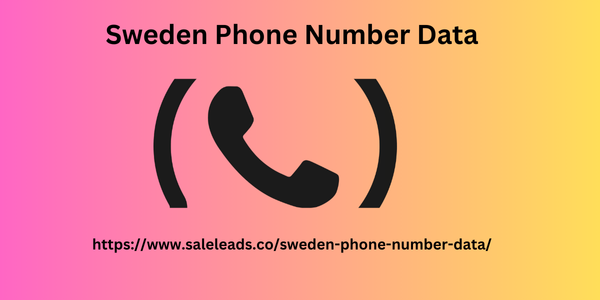|
|
The collection of phone number data in Sweden has gone through a sea change in recent years with the advancement of technology. While this development has made the process easier and time-saving, it also gives rise to important concerns about privacy and security.
One of the major impacts of technology has been moving toward automated ways of data collection. Most of the companies and organizations apply complex software and algorithms for effective gathering and analyses of data Sweden Phone Number Data about phone numbers. Lots of data can be obtained within a very short period from diverse sources: social networks, online forms, and also interactions with customers. Companies can thus build fully filled databases that would help them enhance their marketing strategies and customer outreach initiatives.
More so, artificial intelligence and machine learning have increased accuracy in information collection. In turn, an organization can set the right forecast of consumers' behavior, with whom they seek to interact. For example, from the usage patterns analysis of phone numbers, AI analyzes the best time at which a customer has a maximum probability of reaching a business and ensures their engagement rate is high.
However, this increase in data collection has also given rise to major concerns about privacy. In Sweden, for example, there are strict data protection laws, such as the General Data Protection Regulation, that regulate how personal data, including phone numbers, can be collected and used. This means that organizations have to make sure they have explicit consent from individuals before collecting their data, and they are required to implement robust security measures for the protection of this information.

Moreover, with increased sensitivity among people about their private information, many of them are indeed very reluctant to share their contact numbers. Due to this, any business needs to walk the thin line between valuable data gathering and respecting consumer data privacy.
In other words, as much as technology has increased efficiency and accuracy in the collection of phone number data in Sweden, it has equally brought on challenges that border on privacy and compliance issues. As businesses and consumers continue to adapt to the changing landscape, an ongoing dialogue about data ethics and protection will be necessary in order to build trust and ensure responsible data practices.
|
|